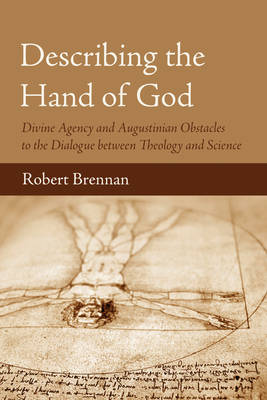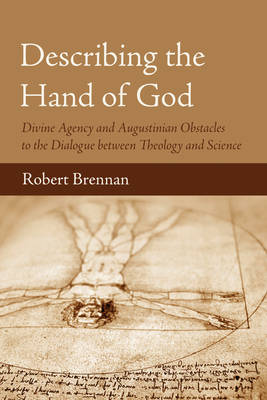
Bedankt voor het vertrouwen het afgelopen jaar! Om jou te bedanken bieden we GRATIS verzending (in België) aan op alles gedurende de hele maand januari.
- Afhalen na 1 uur in een winkel met voorraad
- In januari gratis thuislevering in België
- Ruim aanbod met 7 miljoen producten
Bedankt voor het vertrouwen het afgelopen jaar! Om jou te bedanken bieden we GRATIS verzending (in België) aan op alles gedurende de hele maand januari.
- Afhalen na 1 uur in een winkel met voorraad
- In januari gratis thuislevering in België
- Ruim aanbod met 7 miljoen producten
Zoeken
Describing the Hand of God
Divine Agency and Augustinian Obstacles to the Dialogue Between Theology and Science
Robert Brennan
Hardcover | Engels
€ 92,95
+ 185 punten
Uitvoering
Omschrijving
The question of divine agency in the world remains one important unresolved underlying obstacle in the dialogue between theology and science. Modern notions of divine agency are shown to have developed out of the interaction of three factors in early modernity. Two are well known: late medieval perfect-being theology and the early modern application of the notion of the two books of God's revelation to the understanding of the natural order. It is argued the third is the early modern appropriation of the Augustinian doctrine of inspiration. This assumes the soul's existence and a particular description of divine agency in humans, which became more generally applied to divine agency in nature. Whereas Newton explicitly draws the parallel between divine agency in humans and that in nature, Darwin rejects its supposed perfection and Huxley raised serious questions regarding the traditional understanding of the soul. This book offers an alternative incarnational description of divine agency, freeing consideration of divine agency from being dependent on resolving the complex issues of perfect-being theology and the existence of the soul. In conversation with Barth's pneumatology, this proposal is shown to remain theologically coherent and plausible while resolving or avoiding a range of known difficulties in the science-theology dialogue.
Specificaties
Betrokkenen
- Auteur(s):
- Uitgeverij:
Inhoud
- Aantal bladzijden:
- 304
- Taal:
- Engels
Eigenschappen
- Productcode (EAN):
- 9781498279765
- Verschijningsdatum:
- 20/10/2015
- Uitvoering:
- Hardcover
- Formaat:
- Genaaid
- Afmetingen:
- 152 mm x 229 mm
- Gewicht:
- 576 g

Alleen bij Standaard Boekhandel
+ 185 punten op je klantenkaart van Standaard Boekhandel
Beoordelingen
We publiceren alleen reviews die voldoen aan de voorwaarden voor reviews. Bekijk onze voorwaarden voor reviews.









